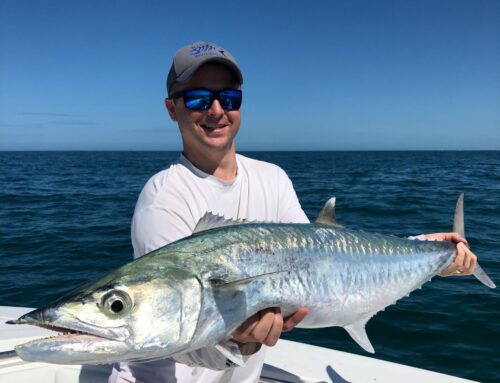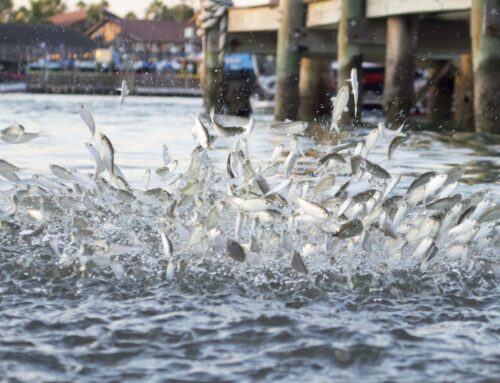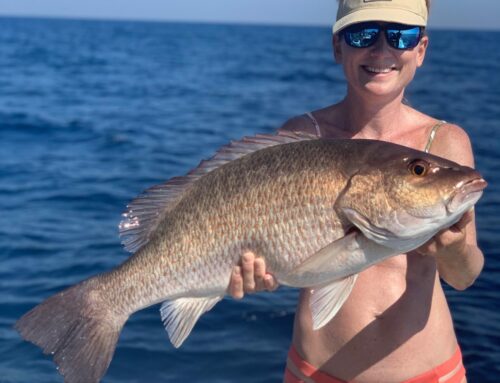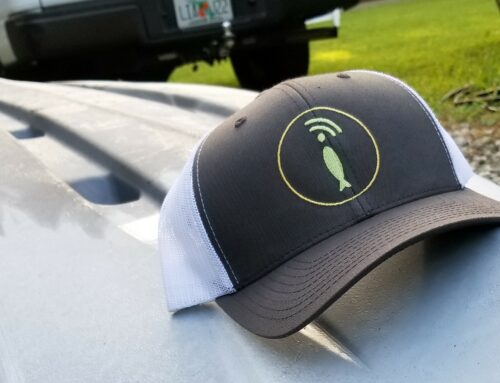This years sessions on regulatory and environmental issues were
- Less combative than last year and…..
- Heavier on the role of institutional activism as a means to address fishing related matters.
- Informative and, maybe even eye opening.
The Theodore Roosevelt Conservation Partnership sponsored and hosted two well constructed lunch sessions:
- Alternative Fisheries Management For The 21st Century
- Will We Ever Restore Water Quality In The Everglades?
Fisheries Management
The first session “Alternative Fisheries Management For The 21st Century” was built around the findings found in the TRCP report “A Vision for Managing America’s Saltwater Recreational Fisheries” (dubbed the Morris-Deal Report), a series of preliminary actions already undertaken and efforts yet to be started. The TRCP, and partners, has stepped squarely into the briar patch that is the Magnuson-Stevens Act.
The report, and the subsequent efforts its findings have engendered, attacks along two fronts – the economic imbalance between commercial & recreational fishing industries and the efficacy of current fisheries management practices.
The Magnuson-Stevens rubric is clearly “commercial first”. TRCP points out the stark disparities in fisheries management ROI between commercial and recreational fishing and Magnuson-Stevens desultory approach to the matter.
The TRCPs approach to fisheries management (from efforts so far) seems to eschew the prevailing “Us vs Them” meme. In workshops and legislative & regulatory engagements TRCP is developing the foundation to modify fisheries management policies through changes to Magnuson-Stevens and administrative actions.
If the panel discussion was lacking in any way it was by the absence of dissenting voices (commercial, etc.) in the room. That not withstanding, the session was a treat to participate in.
The Everglades
The second TRCP session “Will We Ever Restore Water Quality In The Everglades?” was a lively conversation. Again, there were no “other side of the aisle” voices but, plenty of back & forth on the side of the aisle in attendance.
At issue was, not the science – that was stipulated as done but, how to get things accomplished in the real world. The real world, consisting of bureaucrats , landowners, national, state & local governments, industry & citizens just to name some of the stakeholders, appears problematic. In fact, the real world has been problematic for for the health of the Everglades the better part of the last 90 years. Lot’s of shady characters, lot’s of dirty deals.
No definitive conclusion(s) came out of the session. That the Everglades is critical to the health of recreational fishing in Florida is not in question. That the status quo is an unmitigated mess is not in question. That the Everglades is the bulwark protecting South Florida’s water supply is not in question. That we have a workable plan (in process by fits and starts) developed and on the table to restore the health of the Everglades is not in question. What is in question are the motivations, the will to act and the desire to do what is right for those in positions of power and influence.
For more see Here and Here and Here





The Government is killing the water quality and hence the recreational fishing and tourism of the Fort Myers area. It seams clear what the solution is but the will and cooperation isn’t. If these decision makers lived with this mess and it affected them then it would get done yesterday.